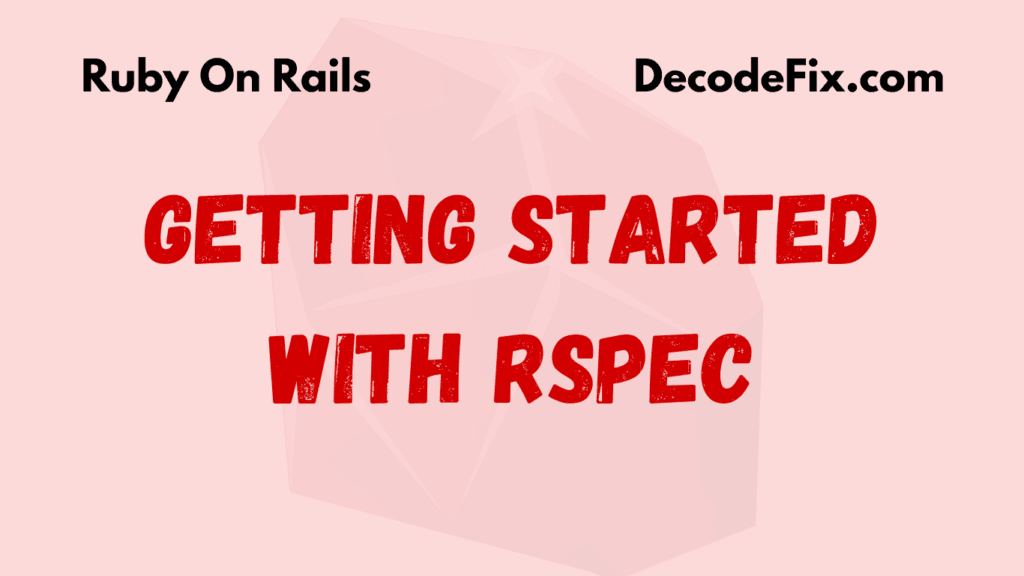
Ruby on Rails is a popular web development framework known for its efficiency and flexibility. It powers some of the best content management systems (CMS) available today, making it an ideal choice for businesses, bloggers, and developers who want reliable and customizable CMS platforms. In this guide, we’ll look at the best Ruby on Rails-based CMS options available in 2024. We’ll cover each one in detail to help you choose the right CMS for your needs.
Why Choose a Ruby on Rails CMS?
Ruby on Rails provides a straightforward and scalable foundation for building web applications. Many developers prefer Rails for CMS because it simplifies complex tasks, offers a wealth of plugins and libraries, and has a vibrant community. Here are some of the primary benefits of choosing a Ruby on Rails CMS:
- Speed and Flexibility: Rails allows developers to build applications faster with its convention-over-configuration philosophy.
- Large Community and Support: The Rails community offers extensive resources, libraries, and open-source contributions.
- Security: Rails comes with built-in security features, which is critical for content management systems.
- Scalability: As your content grows, a Rails CMS can scale to meet the demands of larger audiences.
Now, let’s dive into the top Ruby on Rails-based CMS platforms in 2024-25.
1. Refinery CMS
Overview
Refinery CMS is one of the most widely used open-source CMSs for Rails. It’s designed for simplicity and ease of use, making it perfect for non-technical users. Refinery’s key features include a straightforward WYSIWYG editor, custom page templates, and a robust plugin ecosystem.
Features of Refinery CMS
- Easy to Use: Refinery CMS has a clean, intuitive interface that’s beginner-friendly.
- Modular and Extensible: Refinery’s plugin ecosystem includes modules for blogs, e-commerce, and more.
- Localization Support: This CMS supports multiple languages, making it ideal for global websites.
Who Should Use Refinery?
Refinery is a good choice for small to medium-sized businesses, personal blogs, and local organizations that need a simple and efficient CMS.
2. Alchemy CMS
Overview
Alchemy CMS offers a more flexible approach to content management, focusing on structured data rather than unstructured text. It’s highly customizable, making it popular for developers who want complete control over the content structure.
Features of Alchemy CMS
- Structured Content: Alchemy’s content model is built around “Essences,” which allow structured data and greater control over page layout.
- Developer-Friendly: Alchemy provides a solid framework for developers looking to customize every aspect of the CMS.
- Flexible Content Modules: Create modular, reusable components for different types of content.
Who Should Use Alchemy?
Alchemy CMS is ideal for companies with unique data and structure requirements, such as educational sites, directories, and specialized blogs.
3. Camaleon CMS
Overview
Camaleon CMS is a flexible, fully customizable CMS solution built on Ruby on Rails. It’s inspired by WordPress and aims to offer similar flexibility for Ruby on Rails developers.
Features of Camaleon CMS
- Content Blocks and Widgets: Allows users to build complex layouts with ease.
- Multi-Site and Multi-Language: Supports multiple sites and languages within a single installation.
- E-Commerce Ready: Camaleon offers integrations with e-commerce plugins, making it ideal for online stores.
Who Should Use Camaleon?
Camaleon CMS is an excellent choice for users familiar with WordPress but who prefer Ruby on Rails for backend flexibility. It’s well-suited for e-commerce sites, news websites, and blogs that need customization.
4. Locomotive CMS
Overview
Locomotive CMS is a headless CMS that uses Ruby on Rails and allows content management separate from the frontend. It works seamlessly with static site generators like Jekyll and Hugo, giving developers a great deal of flexibility.
Features of Locomotive CMS
- Headless Architecture: Locomotive is API-driven, so it’s easy to connect with frontend frameworks like React or Vue.
- Customizable Content Types: Offers powerful content modeling with custom fields and content types.
- Multi-Channel Publishing: Publishes content to multiple platforms and devices.
Who Should Use Locomotive?
Locomotive CMS is perfect for developers creating headless applications, static sites, or SPAs who want flexibility in front-end design.
5. Publify
Overview
Publify is one of the oldest Ruby on Rails blogging platforms. It’s a simple, open-source CMS, specifically geared toward bloggers who want a no-fuss setup.
Features of Publify
- Built-In Blogging Tools: Publify includes all the essential blogging tools, from post scheduling to SEO.
- Minimalist Design: It has a clean, minimalist interface that keeps distractions at bay.
- SEO Friendly: Optimized for search engines, Publify makes it easy to reach a broader audience.
Who Should Use Publify?
If you’re looking for a Rails-based platform primarily for blogging and don’t need complex CMS features, Publify is a solid choice.
6. Radiant CMS
Overview
Radiant CMS is a lightweight and user-friendly CMS built with Ruby on Rails, offering a flexible interface and powerful tools for content management. It’s less popular now but still worth considering for simple projects.
Features of Radiant CMS
- Customizable Snippets: Allows users to create reusable content snippets.
- Layouts and Content Parts: Offers a modular approach to page layouts and content management.
- Lightweight and Fast: Radiant is designed to be simple and fast, making it ideal for small sites.
Who Should Use Radiant?
Radiant CMS works well for personal websites, small business pages, and lightweight projects.
Comparison Table of Best Ruby on Rails CMS
| CMS | Best For | Key Feature | Ease of Use |
|---|---|---|---|
| Refinery | Small businesses, blogs | WYSIWYG editor, plugin ecosystem | Easy |
| Alchemy | Structured content sites | Developer control, modular structure | Moderate |
| Camaleon | E-commerce, multi-sites | Flexible widgets, e-commerce ready | Moderate |
| Locomotive | Headless CMS projects | API-driven, headless architecture | Complex |
| Publify | Blogging | Minimalist, SEO tools | Easy |
| Radiant | Small websites | Lightweight, customizable snippets | Easy |
Key Considerations When Choosing a Rails CMS
- Project Complexity: For larger, more complex projects, choose a CMS that offers customization options (e.g., Alchemy or Camaleon).
- Developer Experience: Advanced users may prefer Alchemy or Locomotive for more control over data structure and layout.
- Content Strategy: If you’re running a blog, Publify offers simple, blogging-focused features, while Refinery provides a broader CMS experience for business content.
- E-commerce Needs: For e-commerce capabilities, consider Camaleon CMS, which integrates with e-commerce plugins.
Conclusion
Choosing the best Ruby on Rails-based CMS in 2024-25 depends on your project’s goals, technical requirements, and user needs. From beginner-friendly options like Refinery and Publify to powerful developer-centric choices like Locomotive and Alchemy, there’s a CMS on Rails that’s right for every type of user.
Each CMS offers distinct advantages, so consider your project’s content structure, scalability requirements, and user experience needs to find the ideal match. Whether you’re building a blog, a business site, or a complex web app, these Rails-based CMS platforms can help you achieve a fast, reliable, and customizable web experience.









